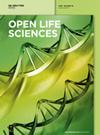VSP-2 attenuates secretion of inflammatory cytokines induced by LPS in BV2 cells by mediating the PPARγ/NF-κB signaling pathway
IF 1.7
4区 生物学
Q3 BIOLOGY
引用次数: 0
Abstract
Neuroinflammation, characterized by microglial activation and the subsequent secretion of inflammatory cytokines, plays a pivotal role in neurodegenerative diseases and brain injuries, often leading to neuronal damage and death. Alleviating neuroinflammation has thus emerged as a promising strategy to protect neurons and ameliorate neurodegenerative disorders. While peroxisome proliferator-activated receptor gamma (PPARγ) agonists have demonstrated potential therapeutic actions on neuroinflammation, their prolonged use, such as with rosiglitazone, can lead to cardiac risks and lipid differentiation disorders. In this study, we investigated the effects of a newly synthesized PPARγ agonist, VSP-2, on secretion of inflammatory cytokines in BV2 cells. Treatment with VSP-2 significantly reduced the mRNA and protein levels of proinflammatory cytokines such as interleukin-1β (IL-1β), IL-6, and tumor necrosis factor-α (TNF-α). Furthermore, VSP-2 attenuated the phosphorylation of nuclear factor kappa B (NF-κB) (65 kD) and IκBα, as well as the nuclear translocation of NF-κB (65 kD). Additionally, the use of PPARγ small interfering RNA was able to attenuate the effects of VSP-2 on proinflammatory cytokines and the NF-κB pathway. In conclusion, our findings suggest that VSP-2 effectively suppressed the expressions of IL-1β, IL-6, and TNF-α via the PPARγ/NF-κB signaling pathway. Given its potential therapeutic benefits, VSP-2 may emerge as a promising candidate for the treatment of neurodegenerative diseases or brain injuries associated with neuroinflammation.VSP-2 通过介导 PPARγ/NF-κB 信号通路,减少 LPS 诱导的 BV2 细胞炎症细胞因子的分泌
神经炎症的特点是小胶质细胞活化和随后分泌炎症细胞因子,在神经退行性疾病和脑损伤中起着关键作用,往往导致神经元损伤和死亡。因此,缓解神经炎症已成为保护神经元和改善神经退行性疾病的一种有前途的策略。虽然过氧化物酶体增殖激活受体γ(PPARγ)激动剂对神经炎症具有潜在的治疗作用,但长期使用(如罗格列酮)可能会导致心脏风险和脂质分化紊乱。在这项研究中,我们研究了一种新合成的 PPARγ 激动剂 VSP-2 对 BV2 细胞中炎性细胞因子分泌的影响。VSP-2能明显降低白细胞介素-1β(IL-1β)、IL-6和肿瘤坏死因子-α(TNF-α)等促炎细胞因子的mRNA和蛋白水平。此外,VSP-2 还能减少核因子卡巴 B(NF-κB)(65 kD)和 IκBα 的磷酸化以及 NF-κB (65 kD)的核转位。此外,使用 PPARγ 小干扰 RNA 能够减弱 VSP-2 对促炎细胞因子和 NF-κB 通路的影响。总之,我们的研究结果表明,VSP-2能通过PPARγ/NF-κB信号通路有效抑制IL-1β、IL-6和TNF-α的表达。鉴于其潜在的治疗功效,VSP-2 可能会成为治疗与神经炎症相关的神经退行性疾病或脑损伤的有前途的候选药物。
本文章由计算机程序翻译,如有差异,请以英文原文为准。
求助全文
约1分钟内获得全文
求助全文
来源期刊

Open Life Sciences
BIOLOGY-
CiteScore
2.50
自引率
4.50%
发文量
131
审稿时长
43 weeks
期刊介绍:
Open Life Sciences (previously Central European Journal of Biology) is a fast growing peer-reviewed journal, devoted to scholarly research in all areas of life sciences, such as molecular biology, plant science, biotechnology, cell biology, biochemistry, biophysics, microbiology and virology, ecology, differentiation and development, genetics and many others. Open Life Sciences assures top quality of published data through critical peer review and editorial involvement throughout the whole publication process. Thanks to the Open Access model of publishing, it also offers unrestricted access to published articles for all users.
 求助内容:
求助内容: 应助结果提醒方式:
应助结果提醒方式:


